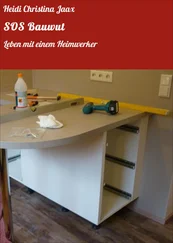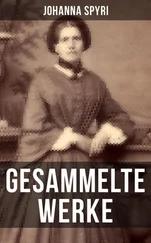‘It won’t take you long, I’m sure,’ Grandmamma told her. ‘Now we must go and see Clara. Let us take the books with us.’ And hand in hand they went to the study.
A change had come over Heidi since the day she had tried to go home and Miss Rottenmeier had given her such a scolding. She now understood that, in spite of what Detie had told her, she could not go away when she wanted to, and that she would have to stay in Frankfurt for a long time, perhaps for ever. She believed that Mr Sesemann would think her very ungrateful if she said she wanted to go away, and probably Grandmamma and Clara would think the same, if they knew. So she dared not tell anyone how she felt, but went about mournfully, with a heavy heart. She had begun to lose her appetite and grew quite pale. When she was alone in her quiet room at night, she often lay awake for hours, thinking of home and the mountains, and when she fell asleep at last, it was to dream of them so vividly that she woke in the morning expecting to run joyfully down the ladder from the loft — and found herself, after all, still in the big bed in Frankfurt, so far away. The disappointment of that awakening often made her cry miserably, burying her face in her pillow so that no one should hear.
Grandmamma saw her unhappiness but said nothing for a few days, waiting to see if it would pass. When there was no improvement, and she had noticed traces of tears on the little face on several mornings, she took Heidi into her room and asked very kindly what the matter was and why she was so sad.
Heidi was afraid of vexing her if she told her the truth, and answered, ‘I can’t tell you.’
‘Can’t? Could you tell Clara then?’
‘Oh no, I can’t tell anyone,’ said Heidi so sadly that the old lady’s heart ached for her.
‘Listen to me,’ she said, ‘if we’re in trouble and can’t tell any ordinary person, why, there is always God whom we can tell, and if we ask Him to help us, He always will. Do you understand? You do pray to God every night, don’t you, to thank Him for all the good things and to ask Him to protect you from harm?’
‘No, I don’t,’ was the reply, ‘never.’
‘Haven’t you been taught to pray, Heidi? Don’t you know how?’
‘I used to pray with my own grandmother, but that’s a long, long time ago. I’ve almost forgotten about it.’
‘Ah — and when you are sad, and have no one to turn to for help, can’t you see what a comfort it is to tell God all about it, knowing that He will help? Believe me, He always finds some way of making us happy again.’
Heidi’s eyes brightened. ‘May I tell Him everything, really everything?’ she asked.
‘Yes, everything.’
Heidi slipped her hand out of the old lady’s.
‘May I go now?’ she asked.
‘Of course, child.’
She ran to her own room, sat down on her stool, and folded her hands. Then she poured out all her troubles to God and begged Him to help her to get home to her grandfather.
One morning, about a week later, Mr Usher asked if he might speak to Mrs Sesemann on an important matter. He was invited to her room, where she received him in her usual friendly way.
‘Come in and sit down, Mr Usher,’ she said. ‘I’m pleased to see you. What is it you want to speak to me about? No complaints, I hope?’
‘On the contrary, Madam,’ he replied. ‘Something has come to pass which I had long given up hoping for. Indeed I think no one who knew the facts would have expected it. Yet, there it is — the impossible has happened.’
‘Are you going to tell me that little Heidi has learnt to read at last?’ asked Mrs Sesemann. The young man opened his eyes very wide.
‘Why, that you should suggest such a possibility, Madam, is almost as surprising as the fact itself. Up till now, in spite of all my efforts, she seemed quite unable to learn even the letters, and I had reluctantly come to the conclusion that she would have to be left to try to learn them in her own way, without any further help from me. Now she has mastered them almost overnight, as it were, and can read — and more correctly than most beginners. It’s really remarkable.’
‘There are many strange things in this life,’ agreed Mrs Sesemann, well pleased. ‘Perhaps this time there was a new desire to learn. In any case, let us be thankful the child has got thus far, and let us hope she will continue to make progress.’
She then went with the tutor to the door and, as he went downstairs, hurried to the study to find out for herself about this good news. She found Heidi reading aloud to Clara, and quite excited at the new world which had been opened to her, as the black letters on the page came alive and turned into stories about all kinds of people and things.
That evening, at supper, Heidi found the big picture book beside her place. She looked brightly at Grand‐mamma, who nodded and said, ‘Yes, it’s yours now.’
‘For ever and ever? Even when I go home?’ asked Heidi, flushing with pleasure.
‘Yes, of course, and tomorrow we’ll start to read it.’ ‘But you won’t be going home, Heidi, not for ages,’ put in Clara. ‘Grandmamma will be leaving soon and then I shall need you more than ever.’
Before going to sleep that night, Heidi had a good look at her lovely book, and thereafter, reading was her greatest delight. Sometimes in the evening Grandmamma would say, ‘Now Heidi shall read to us,’ and that made her very proud. She seemed to understand the stories better when she read them aloud, and Grandmamma was always ready with any explanation that was necessary. Her favourite story, which she constantly reread, was about the shepherd whose picture had brought the tears to her eyes when she first saw it. Now she knew it showed him happily tending his father’s sheep and goats in sunny meadows, like those on the mountain. In the next picture he had left his good home and was minding a stranger’s pigs in a foreign land. Here the sun was not shining and the countryside was grey and misty. The young man looked pale and thin in that picture, for he had nothing but scraps to eat. The last one showed his old father running with outstretched arms to greet him as he returned home sorrowful, and in rags.
With so many nice stories to read and pictures to look at, the days of Grandmamma’s visit passed happily, but all too quickly.
Every afternoon during Mrs Sesemann’s visit, while Clara was resting and Miss Rottenmeier had taken herself off mysteriously, presumably to rest also, the old lady sat with her granddaughter for a few minutes, and then called Heidi to her room, where she talked to her and amused her in a variety of ways. She had some pretty little dolls with her and showed Heidi how to make clothes for them, and in this pleasant fashion the child learnt to sew, almost without realizing it. Mrs Sesemann had a wonderful piece‐bag, with materials of all kinds and colours in it, and from these Heidi made dresses, coats, and aprons for the dolls. Sometimes Mrs Sesemann let her read aloud from her book, which of course pleased her very much, and the more often she read the stories the more she liked them. She lived with the characters and got to know them all so well, she was always glad to meet them again. But in spite of these pleasant distractions, she did not look really happy, and her eyes had quite lost their sparkle.
One afternoon during the last week of Grandmamma’s stay, Heidi came to her room as usual, with the big book, and the old lady drew her to her side, laid the book down, and said:
‘My dear, tell me why you’re not happy. Is it still the same trouble?’
Heidi nodded.
‘Did you tell God about it?’
‘Yes.’
‘And do you pray to Him every day to make you happy again?’
Читать дальше
Конец ознакомительного отрывка
Купить книгу












